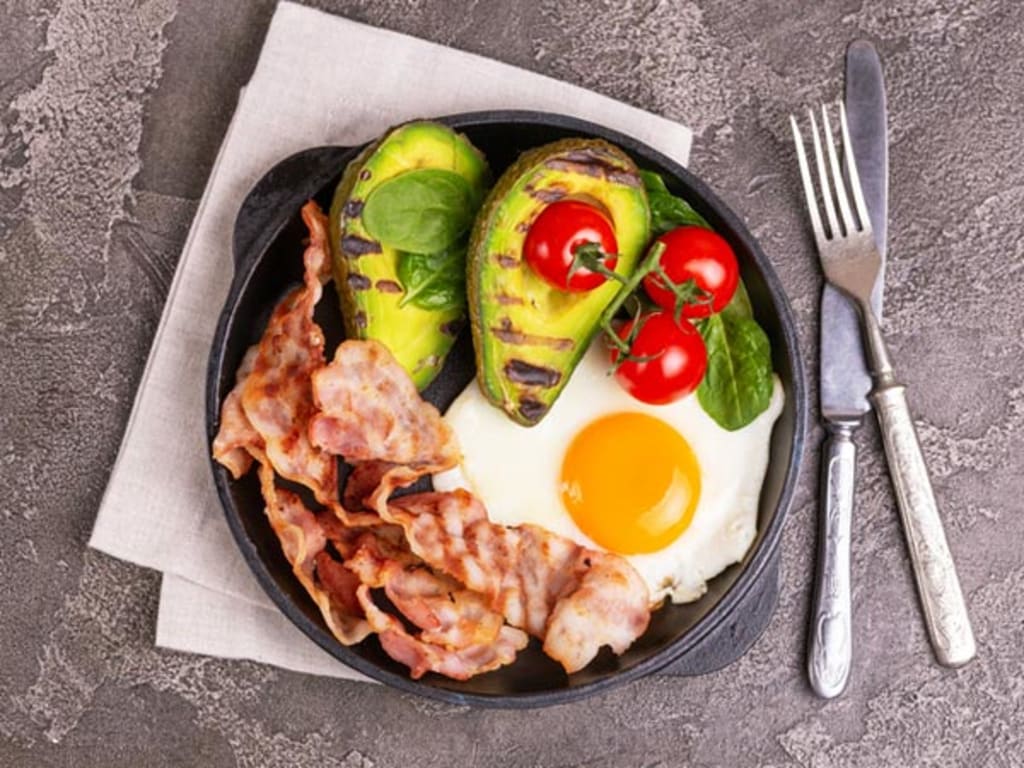About Keto Diet
Good benefits of Keto Diet

The goal of the ketogenic diet is to encourage your body to burn fat for energy by taking relatively few carbohydrates and replacing them with fat. Losing weight and reducing your risk of contracting certain diseases are two health advantages.
What is a ketogenic diet?
A very low carb, high fat diet, the ketogenic diet is comparable to the Atkins and low carb diets in many ways. It entails significantly lowering carbohydrate intake and substituting fat for it. Your body enters a metabolic condition known as ketosis as a result of this carbohydrate restriction. Your body becomes highly effective at burning fat for energy when this occurs. Additionally, it causes the liver to produce ketones from fat, which the brain can use as fuel. Blood sugar and insulin levels can be significantly reduced by ketogenic diets. This has various health advantages in addition to the elevated ketones.
Many kinds of ketogenic diets.
The ketogenic diet comes in a variety of forms, including:
The standard ketogenic diet (SKD) consists of a high fat, moderate protein, and very low carbohydrate diet. Usually, it has 70% fat, 20% protein, and only 10% carbohydrates (9Trusted Source).
The cyclical ketogenic diet (CKD) alternates periods of lower carb refeeds, such as five days of ketosis followed by two days of high carbs.
Targeted ketogenic diet (TKD): This diet permits the addition of carbs just before or after exercise.
A ketogenic diet with a high protein content is similar to one with a low protein content. Frequently, the breakdown is 60% fat, 35% protein, and 5% carbohydrates.
However, only the conventional and high-protein ketogenic diets have undergone in-depth research. Bodybuilders and athletes choose to utilise cyclical or targeted ketogenic diets as these are more sophisticated approaches.
Although many of the same principles also apply to the other variations, the majority of the information in this article focuses on the standard ketogenic diet (SKD).
What is ketosis?
When your body is in ketosis, it switches from using carbohydrates as fuel to using fat as fuel. It happens when you drastically cut back on carbohydrates, which restricts your body's ability to produce glucose (sugar), the primary source of energy for cells. The best strategy to start ketosis is to follow a ketogenic diet. Typically, this entails keeping your daily carb intake between 20 and 50 grammes and loading up on good fats like those found in meat, fish, eggs, nuts, and seeds. It's also crucial to limit your protein intake. This is because if you take large amounts of protein, it can be turned into glucose and may delay the onset of ketosis.
You might enter ketosis more quickly if you practise intermittent fasting. There are many other ways to fast intermittently, but the most popular one entails eating just for around eight hours a day and fasting for the other sixteen. There are tests for blood, urine, and breath that can measure the body's production of ketones to assist identify whether you've reached ketosis. Increased thirst, dry mouth, frequent urination, and decreased hunger or appetite are some signs that you may have entered ketosis.
Why is a ketogenic diet healthy for you?
A keto diet is a way of eating that places an emphasis on foods that are high in beneficial fats, sufficient in protein, and low in carbohydrates. To consume more calories from fat than from carbohydrates is the goal.
The diet works by reducing the body's supply of sugar. It will consequently start to digest fat for energy. As a result, the body begins to produce molecules known as ketones, which it uses as fuel. Weight loss can result from the body burning fat.
1. Support weight loss
The ketogenic diet may aid in weight loss in a number of ways, including by increasing metabolism and decreasing appetite. Ketogenic diets include satiating foods that may lower hormones that cause hunger. Dependable source these factors suggest that adopting a ketogenic diet may decrease hunger and aid in weight loss.
2. Improve acne
Numerous factors can contribute to acne, and some people's diets and blood sugar levels may be involved. Eating a diet rich in processed and refined carbohydrates may change the balance of gut bacteria and create major swings in blood sugar, both of which can be harmful to the health of the skin.
Get your the best recipe cookbook of keto diet here: https://www.digistore24.com/redir/283755/Haniffahmi/
3. May improve your health heart
When following the ketogenic diet, it's crucial to make healthy meal selections. According to some research, consuming healthy fats like avocados instead of unhealthy fats like pork rinds will help lower cholesterol and hence improve heart health.
4. May protect brain function
Suggest that the brain and nerve cells can be strengthened and protected by the ketones produced during the keto diet, a practise known as neuroprotection.





Comments
There are no comments for this story
Be the first to respond and start the conversation.